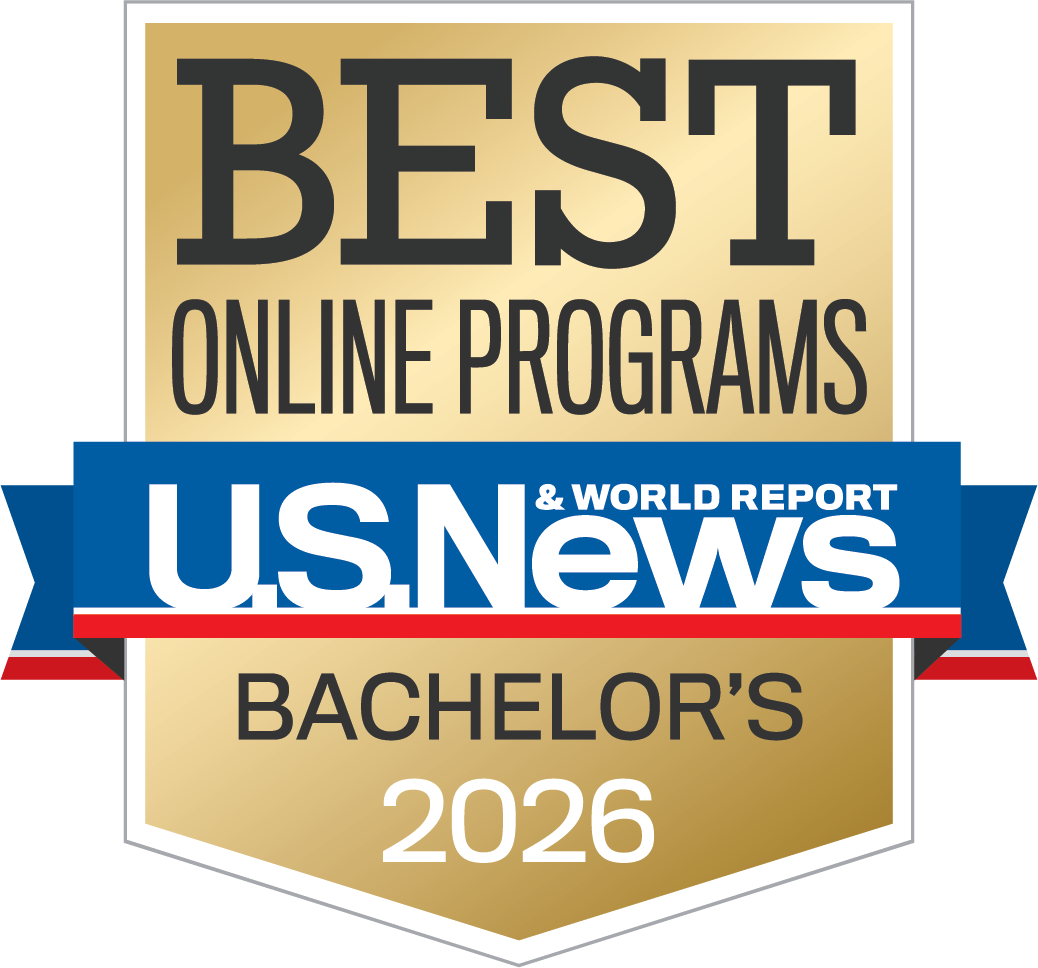Pathways
Follow your career pathway with Herzing

- Program length: 16 months
- Classes: View the curriculum
- Credential earned: Associate of Science in Healthcare Administration

- Program length: 32 months
- Classes: View the curriculum
- Credential earned: Bachelor of Science in Healthcare Administration

- Program length: 16 months
- Classes: View the curriculum
- Credential earned: Master of Science in Healthcare Administration
Your career in healthcare administration IS possible with Herzing
| Accreditation | Accredited by the Higher Learning Commission |
|---|---|
| Options | Choose from associate, bachelor's, or master's degree options |
| Transfer credit | Transfer up to 90 approved credits into a bachelor's degree program (no expiration date on gen eds) |
| Format | 100% online classes you can take right at home, including an applied capstone or internship (where available) |
| QuickPaths | Earn dual credit in a bachelor’s degree program towards an MBA degree; pathway into an MHA program |
Learn More Today!

Satisfaction rate
Our overall student satisfaction rate, according to the 2024 Herzing Graduate Survey.
Choose Your Pathway in Healthcare Administration
Healthcare Administration degree options include undergraduate and graduate degree programs which prepare you to succeed in a career as a leader in healthcare.
Our online degree programs provide fundamental knowledge and skills in medical terminology, public and private delivery of healthcare, patient privacy, health policy, and much more.

Career-focused curriculum
Discover the crucial knowledge and skills required to succeed in your work and build a foundation for continued career growth.
Flexible schedule
You can take classes during the day or in the evening. We work hard to help you maintain school-life balance, striving to be as flexible as possible for busy non-traditional students.
Virtual services
Access to extensive virtual services, including academic advising, tutoring, support services, technical support and library services.
Lifelong support
We support your ongoing career advancement by providing comprehensive, personalized student services with lifelong career coaching.
Rolling admissions
No application deadlines to worry about. Apply when you’re ready and prepare to get started soon.
Save time and money by earning dual credit
Students in Herzing University's Healthcare Administration bachelor’s degree program can get a head start on earning a Master of Business Administration (MBA).
Qualifying students can take up to 12 graduate credits while still an undergraduate and apply these credits toward both their BS and MBA degrees.
Waived Enrollment Fee
Discover the educational pathway designed to maximize your career potential. Reach for greater heights with Herzing University.
What can I do with a degree in healthcare administration?



The field of healthcare administration and management covers many different potential job titles—from entry-level administrative roles to positions at the managerial level.
Medical and Health Services Manager Ranked #1 Best Health Care Support Job of 2025 by U.S. News & World Report
Career opportunities in healthcare administration include:
- Medical Secretary
- Administrative Support Specialist
- Administrative Coordinator
- Healthcare Administrator
- Clinical Manager
- Practice Manager
How can I advance my career? While there can be multiple factors considered in a promotion, one of the best ways to start climbing the ladder is to further your education. We offer multiple undergraduate degree options in healthcare with eligibility to build towards an MS in Healthcare Administration, or a Master of Business Administration (MBA).
Job Outlook
According to the Bureau of Labor Statistics (BLS), employment of healthcare administration professionals is projected to rise from 2024-2034:*
- Medical secretaries: 4% increase
- Medical and health services managers: 23% increase
Now is a great time to earn an undergraduate degree in healthcare administration and join a rapidly growing field.
Faq
Frequently Asked Questions
Didn't find the answer to your question? Send us an inquiry and we will be happy to answer all your questions!
Healthcare administrative work settings include hospitals, physician offices, nursing and residential care facilities, outpatient care centers, insurance companies and government agencies. Administrators typically work alongside medical personal in an office environment.
Health administration covers a wide variety of different positions, from entry level roles to management-oriented roles, titles including “Hospital Administrator” or “Practice Administrator.” Because of this, pay can vary widely.
According to the Bureau of Labor Statistics, medical secretaries/administrative assistants earn an average salary of $45,580 per year ($21.91 per hour). This estimate does not represent entry-level/starting pay. Average pay varies based on level of experience, education and state of employment.*
As a healthcare administrator, your day-to-day tasks may vary. They could include meetings, communications (either written or verbal), and working with medical personnel from your own or different departments.
Your role may also involve day-to-day operations that keep things running smoothly. This may include staffing, patient relations, scheduling and inventory control.
Yes, and it’s projected to rise. The BLS projects employment of medical secretaries/administrative assistants to rise 4% from 2024-2034.*
Now is a good time to get the education you need to start a career in healthcare administration & management.
The benefits of working in health administration include:
- You can work in many different settings, including hospitals, healthcare clinic, long-term care facility, doctor’s offices, insurance companies and government agencies.
- Career mobility is high, as your versatile skillset is applicable in many different environments and gives you more choice in pursuing your career path.
- The field is growing, with the Bureau of Labor Statistics estimating a 23% increase in employment for medical and health services managers from 2024-2034.*
- You can help people get better, but you don’t necessarily need to be directly involved in patient care and treatment.
No, you will need more than an associate degree in healthcare administration to apply for certification.
To become eligible for certifications you will need to earn a bachelor’s degree in healthcare administration. After obtaining your bachelor’s degree, these certifications include:
- Lean Six Sigma Yellow Belt (LSSYB) from GoLeanSixSigma
- Certified Specialist in Managed Care (CSMC) through Healthcare Financial Mgmt Associations (HFMA)
There is a lot of overlap in terminology between roles in healthcare management vs. healthcare administration. However, they are unique career paths requiring distinct sets of skills:
- Healthcare management. Healthcare managers deal in the overall operation of an organization. Their primary role is in leadership and the business side of healthcare. Healthcare managers interact with stakeholders and other board members for organizational direction and planning, usually involves managing more than one department—or an entire clinic.
- Healthcare administration. Healthcare administrators are more concerned with day-to-day operations. An administrator’s focus is on daily staff management and administrative procedures within a department. Healthcare administrators usually report to healthcare managers, and work within individual departments as supervisors or manager support. They may be found in smaller, rural areas as office managers or other similar job titles depending on area, experience and availability.
Smaller healthcare institutions may merge the roles into single positions and use each term interchangeably, but bigger facilities will often specialize into unique roles and differentiate them more clearly in terms of management or administration.
Program Finder
Master of Science in Healthcare Administration
OnlineTo learn more about this program, click the Request Info button.
Bachelor of Science in Healthcare Administration
OnlineTo learn more about this program, click the Request Info button.
Associate of Science in Healthcare Administration
OnlineTo learn more about this program, click the Request Info button.
The Student Experience at Herzing
Now that I’m a grad, I’ll be using my degree to become an awesome supervisor.
Ashley Smith
Healthcare Student | Brookfield/Milwaukee CampusThere was so much information that I learned in my year of studies, and I found all of it extremely valuable to my new career.
Angel Mckay
Healthcare Student | Kenosha CampusI found that courses directly related to healthcare workers, such as accounting, marketing and managed care, were most valuable.
Roxanne Cinelli
Healthcare Student | Orlando CampusHerzing is a great university for anyone to attend.
Stephanie Cole
Healthcare Student | Online CampusMy advice would be to never give up no matter how many times you may fall. Your goal should be to never fall no matter what happens!
Sharita Evans
Healthcare Student | Kenosha CampusRecent Blog Posts
Accreditation & Disclosures
Herzing University is accredited by the Higher Learning Commission (hlcommission.org), an institutional accreditation agency recognized by the U.S. Department of Education.
View Herzing University Accreditation and Approvals
* BLS pay estimates calculate the median annual wage for various occupations. Per the BLS the median wage for an occupation is: "The wage at which half of the workers in the occupation earned more than that amount, and half earned less. Median wage data are from the BLS Occupational Employment and Wage Statistics survey." Bureau of Labor Statistics (BLS), U.S. Department of Labor, Occupational Outlook Handbook 2024. BLS median wage estimates do not represent entry-level wages and/or salaries. Multiple factors, including prior experience, age, geographic market in which you want to work, and degree level and field, will affect career outcomes, including starting salary and earnings as an experienced employee. Herzing neither represents that its graduates will earn the median salaries calculated by BLS for a particular job nor guarantees that graduation from its program will result in a job, promotion, particular wage or salary, or other career growth.
Waived Enrollment Fee
Discover the educational pathway designed to maximize your career potential. Reach for greater heights with Herzing University.








